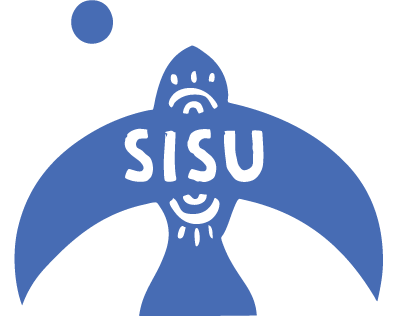Issue 1: Objects In The Mirror
Don't Call Me A Lady
December 23, 2018
In Issue One of Sisu Magazine, Genevieve Parker, Justyne Zella Rayne, and Kate Sage explore how a move to more to gender-neutral language can create more inclusive spaces. PC: @rayne_in_the_spokes
Women are being celebrated in the outdoors in ways that we have never seen, from marketing campaigns to athlete endorsements to pitch competitions and beyond. While their advancement is long overdue and is cause for celebration, there is a group of people who still remain in the shadows: The vast community of people who identify outside of the gender binary of cisgender male and cis female.
Cisgender (or just cis) women are just beginning to enjoy all of the access to the outdoors that cis men always have had access to. One would think that because their newly found prestige is so fresh, and still so raw, that it would be obvious that those who are still marginalized are looking toward them to extend their power in an effort of radical inclusion and intersectionality. But there are women's groups, companies, and media outlets that make zero reference to inclusivity beyond cis women.
Cis women’s complicit discrimination against transgender women, transgender folks as a whole, as well as non-binary and genderqueer folks, keeps us disconnected and weakens any opportunity to improve gender equity. For cis women who are frustrated by being left out or offered less, we ask you to realize that gender inclusion and equality goes beyond the gender binary and “men’s vs. women’s.” We can’t dismantle the patriarchal culture of the sports and outdoors community by reinforcing the same systems of discrimination that uphold it. Real parity occurs when we commit to oppose patriarchal gender expectations in all its forms. Our best option is to come together, over a shared love of being active outdoors, as a unified force that has the strength and cohesion to overcome gender-based issues in the outdoor community.
Women’s groups that don’t outright specify inclusion for trans and non-binary folks provide a safe space for cis women, but they may not feel safe for everyone who want to participate. Trans and genderqueer/non-binary folks, as well as people of color, frequently acknowledge that they don't feel comfortable in groups that appear largely cisgender and white. Non-inclusive women’s groups aren’t a good way to bring the full spectrum of people with marginalized gender identities together. In a radically inclusive group, conversations and activities must happen in a way that acknowledges not all of the members may be cisgender.
The easiest habit to change is to switch to gender-neutral language. Starting a conversation with “Hey ladies” or “Hi Gals” can have detrimental effects because many genderqueer/non-binary folks do not identify as ladies or gals. Even if a group doesn’t have genderqueer/non-binary members yet, using gender-neutral language will make your group more welcoming and attractive to prospective members. Instead of using gendered terms such as ladies, you can address the group as folks, people, peeps, lovelies, babes, humans, rad people, friends, y’all, etc.
Picking up what we're putting down? Get the rest of the story in Issue One of Sisu Magazine. Never miss an issue by subscribing here.

